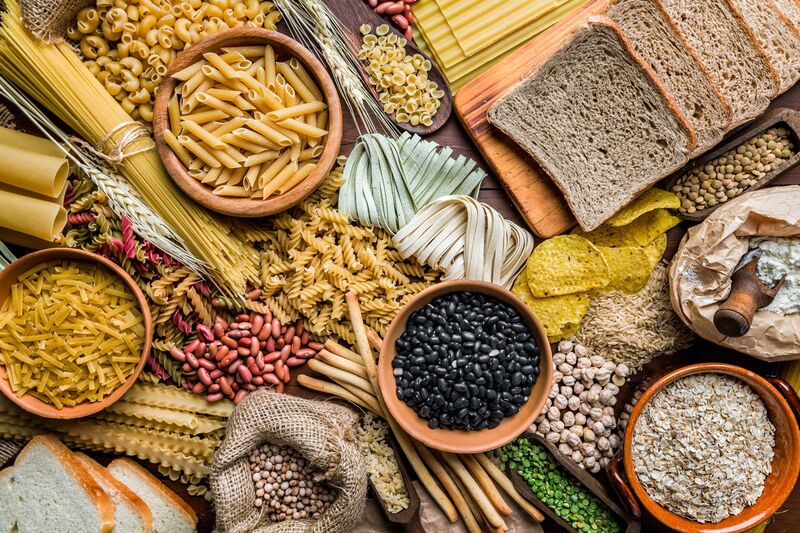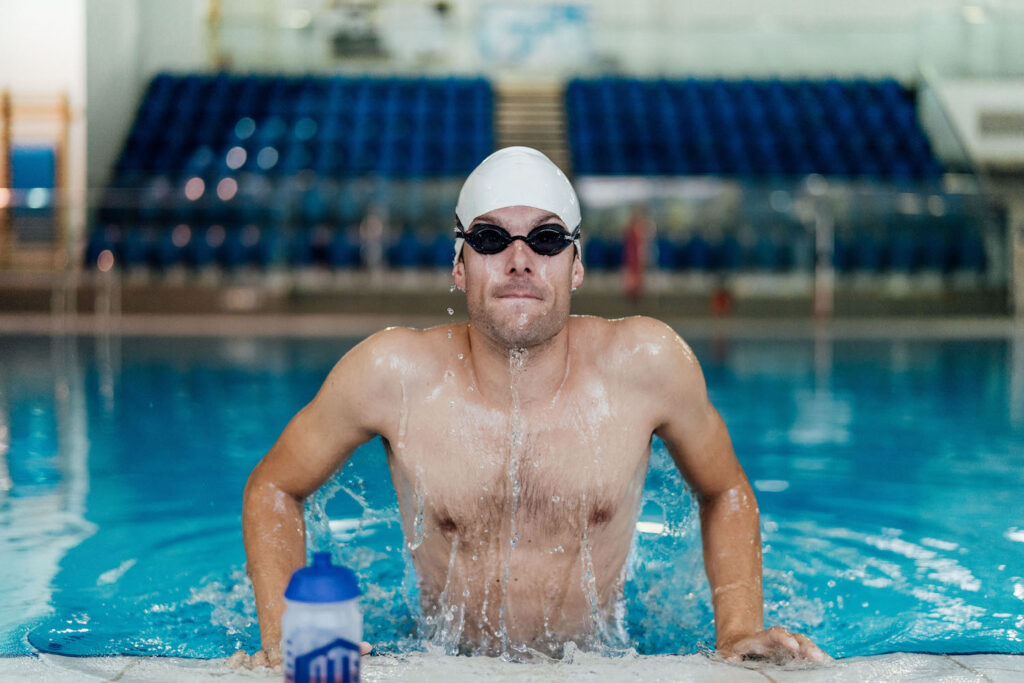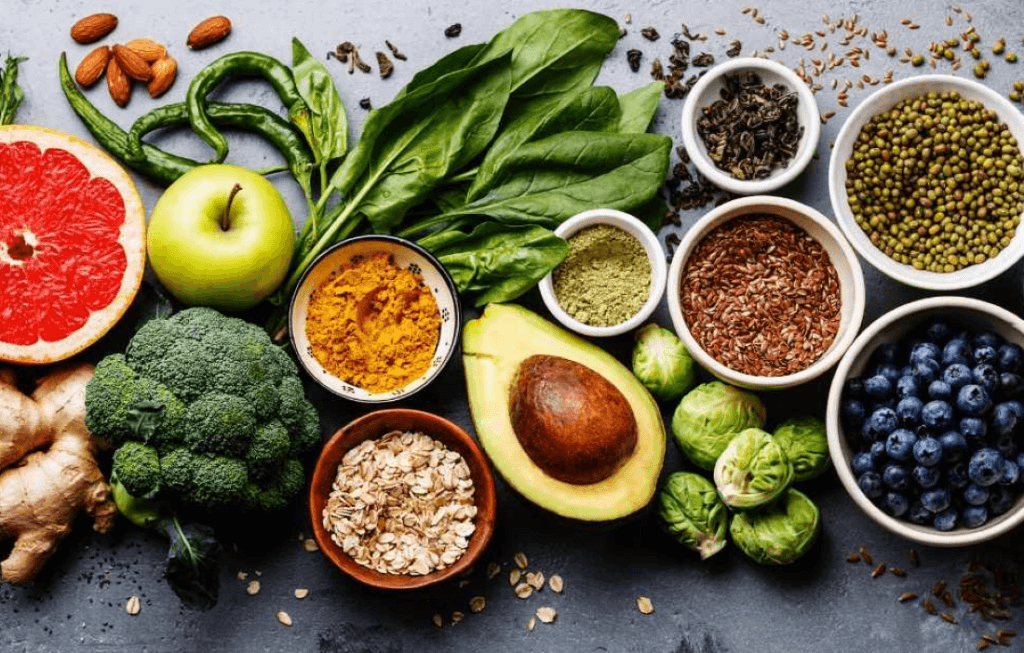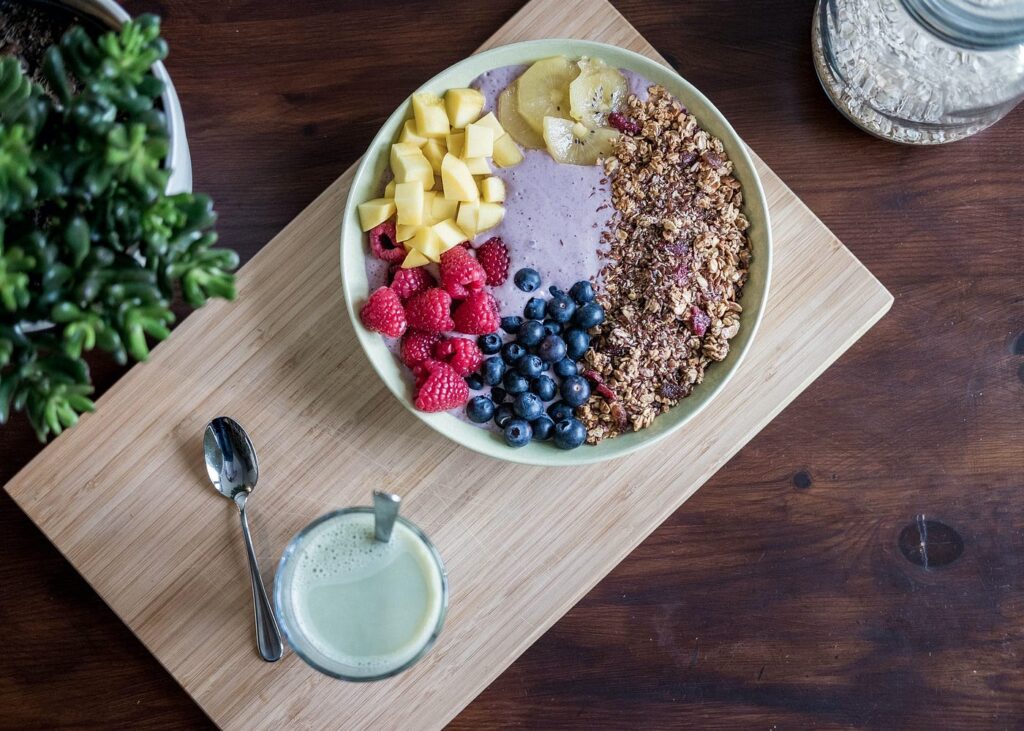Competitive swimming demands not only rigorous training but also a meticulously planned diet to ensure peak performance. This guide offers an in-depth look at the dietary needs of competitive swimmers, emphasizing the importance of proper nutrition to fuel the intense physical demands of the sport.
Key Takeaways
- A balanced diet with carbohydrates, proteins, and healthy fats is crucial for competitive swimmers.
- Proper meal timing, especially before and after swimming, enhances performance and recovery.
- Hydration is as important as food intake and should be carefully managed before, during, and after swim sessions.
- Supplements can play a role in a swimmer’s diet but should be used judiciously and preferably under professional guidance.
- Tailoring the diet to individual training schedules and nutritional needs is essential for optimal performance.
The Basics of a Competitive Swimmer Diet
Understanding Nutritional Needs
Swimmers require a unique balance of nutrients to maintain energy levels, support muscle repair, and ensure overall health. Carbohydrates are the primary fuel source, but it’s crucial to integrate proteins and fats effectively. Consulting with an Accredited Sports Dietitian can help tailor nutritional plans to individual needs, considering factors like training load and health goals.

Carbohydrates are the primary fuel source
Key Components of a Swimmer’s Diet
A swimmer’s diet should be rich in carbohydrates, proteins, and healthy fats. Foods like lean meats, whole grains, and a variety of fruits and vegetables should form the basis of meals. Remember, not all fuel is created equal, and choosing the right types of foods is essential for peak performance.
Balancing Macronutrients
It’s important to balance the intake of carbohydrates, proteins, and fats. Carbohydrates should make up about half of a swimmer’s diet, with proteins and fats adjusted according to training demands. Hydration also plays a critical role and should not be overlooked. Regular water intake is necessary to maintain optimal body function during intense training sessions.
Pre-Swim Fuel: What to Eat Before Diving In
Timing Your Meals
Timing is everything when it comes to pre-swim nutrition. Eating your meal 2 to 4 hours before your swim ensures that you have enough energy to last through your session without feeling sluggish. It’s crucial to keep this timing consistent to avoid any digestive discomfort during your swim.
Ideal Pre-Swim Foods
To swim faster, focusing on high-carbohydrate meals that are low in fiber and fat can help boost your energy levels without weighing you down. Here are some top picks for pre-swim meals:
- Pasta with a light sauce
- White rice with grilled chicken
- Oatmeal with bananas
- Energy bars
Hydration Strategies
Hydration shouldn’t be overlooked, especially before a swim. Sipping on water regularly leading up to your event will keep you hydrated but not overly full. For those looking to optimize their performance, including electrolyte-enhanced drinks can help maintain the balance of fluids in your body.

Post-Swim Recovery Nutrition
The Importance of Protein
Protein is crucial for muscle repair and growth after a swim. Consuming a protein-rich snack or meal soon after exiting the pool can significantly enhance your recovery. Options like Greek yogurt, a chicken salad, or a protein shake are excellent choices.
Replenishing Energy Stores
After a rigorous swim, your body’s energy stores are depleted. Carbohydrates are key to refueling these stores. Think pasta, rice, or whole grain breads. It’s not just about eating carbs, but choosing the right types that provide long-lasting energy.
Hydration After Swimming
Rehydration is essential, not just with water but also electrolytes lost through sweat. A balanced intake of fluids post-swim is crucial for optimal recovery and preparation for the next swim. Consider drinks that include electrolytes or simply water if your swim was less intense.
Remember, it’s essential to consume a recovery meal or snack soon after swimming, especially if you have another training session or race the following day.
Everyday Meals for Peak Performance
Sample Meal Plans
To keep your energy levels up and muscles in top shape, it’s crucial to plan your meals meticulously. A balanced meal plan should include a variety of foods from all food groups. Here’s a quick breakdown:
- Breakfast: Oatmeal with fruits, nuts, and a scoop of protein powder.
- Lunch: Grilled chicken or fish, a large salad, and quinoa or brown rice.
- Dinner: Stir-fried tofu with vegetables and a side of whole-grain pasta.
- Snacks: Greek yogurt, fresh fruits, or a handful of almonds.
Snacks that Boost Energy
Snacks are not just fillers; they are crucial for maintaining high energy levels throughout the day. Opt for snacks that are rich in proteins and healthy fats to keep you going. Some great options include:
- Nut butter on whole grain toast
- A smoothie with spinach, banana, and a protein boost
- Hummus with carrot and celery sticks
Balancing Variety and Nutrition
It’s easy to fall into a routine of eating the same meals, but variety is key to covering all nutritional bases. Rotate your proteins, switch up your veggies, and experiment with different grains. This not only prevents dietary boredom but also ensures a broader intake of nutrients. Remember, a colorful plate is often a healthier one!

The Role of Supplements in a Competitive Swimmer’s Diet
When to Consider Supplements
Supplements can be a game-changer in a swimmer’s diet, especially when dietary intake isn’t meeting all nutritional needs. Timing is crucial; consider supplements during intense training periods or when recovering from competitions. Here’s a quick guide:
- Pre-training: Supplements like BCAAs can help boost performance.
- Post-training: Protein shakes can aid in muscle recovery.
- Daily: Multivitamins ensure all micronutrient needs are met.
Choosing the Right Supplements
Not all supplements are created equal. Opt for those that are third-party tested for purity and effectiveness. Essential supplements include:
- Whey protein for muscle repair
- Creatine for energy production
- Omega-3 fatty acids for inflammation reduction
Natural vs. Synthetic Options
Natural supplements, derived from food sources, are generally preferred due to their bioavailability and fewer side effects. However, synthetic options can be more concentrated and cost-effective. Weigh the pros and cons based on your specific health needs and goals.
Nutrition During Swim Meets
Optimizing Performance with Diet
To swim fast and maintain energy throughout the competition, it’s crucial to have a strategic eating plan. Focus on high-carbohydrate meals that are easy to digest. This ensures a steady supply of energy to your muscles.
What to Eat on the Day
On the day of the meet, start with a balanced breakfast that includes carbs, proteins, and a small amount of fats. Throughout the day, opt for snacks like bananas, energy bars, and yogurt. These help maintain blood sugar levels and prevent spikes and crashes.

Staying Hydrated During Competitions
Hydration is key to optimal performance and recovery. Aim to drink fluids regularly throughout the event. A mix of water and electrolyte drinks can help maintain electrolyte balance and prevent dehydration.
Remember: Always test your meal and hydration strategies during training to avoid any surprises on the day of the competition.
Common Dietary Mistakes Swimmers Make
Overlooking Micronutrients
Swimmers often focus so much on macronutrients like carbs and proteins that they forget about the crucial role of micronutrients. Vitamins and minerals are essential for optimal body function, especially when pushing your body to its limits. Include a variety of fruits and vegetables in your diet to ensure you’re getting these vital nutrients.
Inconsistent Eating Habits
It’s not just what you eat, but also when you eat that matters. Skipping meals or eating at irregular times can sabotage your training and recovery. Try to maintain a regular eating schedule to keep your energy levels stable throughout the day.
Neglecting Hydration
Proper hydration is key to performance and recovery, yet it’s often overlooked. Swimmers should aim to consistently hydrate before, during, and after training. Remember, if you’re feeling thirsty, you’re already dehydrated. Make hydration a priority in your daily routine to ensure peak performance.
Tailoring Your Diet to Your Training Schedule
Adjusting Caloric Intake
To keep up with the demands of your training, adjust your caloric intake based on your activity level. On heavy training days, you’ll need more calories to sustain your energy. Conversely, on lighter days or rest days, reduce your intake to avoid unnecessary weight gain.
Periodizing Nutrition
Align your eating habits with your training phases. During peak training times, focus on carbohydrates for energy and proteins for muscle repair. In the off-season, you might shift towards maintaining your weight and health, possibly reducing the overall caloric load.
Listening to Your Body
It’s crucial to be in tune with your body’s signals. If you’re feeling sluggish, it might be a sign to boost your carbohydrate intake. Conversely, feeling overly full or heavy could mean you need to cut back. Regularly consulting with a sports dietitian can help you make these adjustments more effectively.
Remember: The key to effective nutrition is not just what you eat, but when you eat it in relation to your training schedule.
Optimizing your diet to complement your training schedule is crucial for peak performance in swimming. At Swim Time Log, we provide comprehensive guides and personalized advice to help you balance your nutritional intake with your swimming regimen. Visit our website to explore our detailed articles and resources tailored to enhance your swimming experience.
Dive Into Success: Wrap-Up on the Competitive Swimmer Diet
As we wrap up our guide on the competitive swimmer diet, remember that the right nutrition is your secret weapon in the pool. Embrace a balanced diet rich in carbohydrates, proteins, and healthy fats to fuel your training and competitions. Don’t forget to hydrate and consult with a sports dietitian to tailor your diet to your specific needs. Dive in, fuel up, and swim your way to victory!
Read more: Building Future Champions: Essential Diet Tips for Young Swimmers
AUTHOR
Sang Nguyen
Sang Nguyen is a former national swimmer for Vietnam who has transitioned into coaching. With a passion for fostering a healthy swimming community and connecting like-minded individuals,......Read More
BLOG
Maybe You Are Interested
Good Swim Meet Snacks: What to Eat for Optimal Performance
Good nutrition is crucial for swimmers to maintain energy, recover quickly, and perform at their...
Read More...Optimizing Your Performance: The Best Diet for Swimming Training
Optimizing your performance in swimming is not just about rigorous training; it’s equally crucial to...
Read More...Achieve Peak Performance with This Diet Chart for Swimmers
Whether you’re a novice or an expert swimmer, understanding the right diet is crucial for...
Read More...Eating Like a Champion: Exploring the Diet of Michael Phelps
Michael Phelps, renowned for his Olympic triumphs, has a diet as extraordinary as his swimming...
Read More...Muscle Gain for Swimmers: Tailoring Your Diet for Strength
Swimming is a demanding sport that requires a tailored approach to nutrition to support muscle...
Read More...A Comprehensive Diet Plan To Gain Weight For Swimmers
Swimming is a demanding sport that requires meticulous attention to nutritional needs to optimize performance,...
Read More...